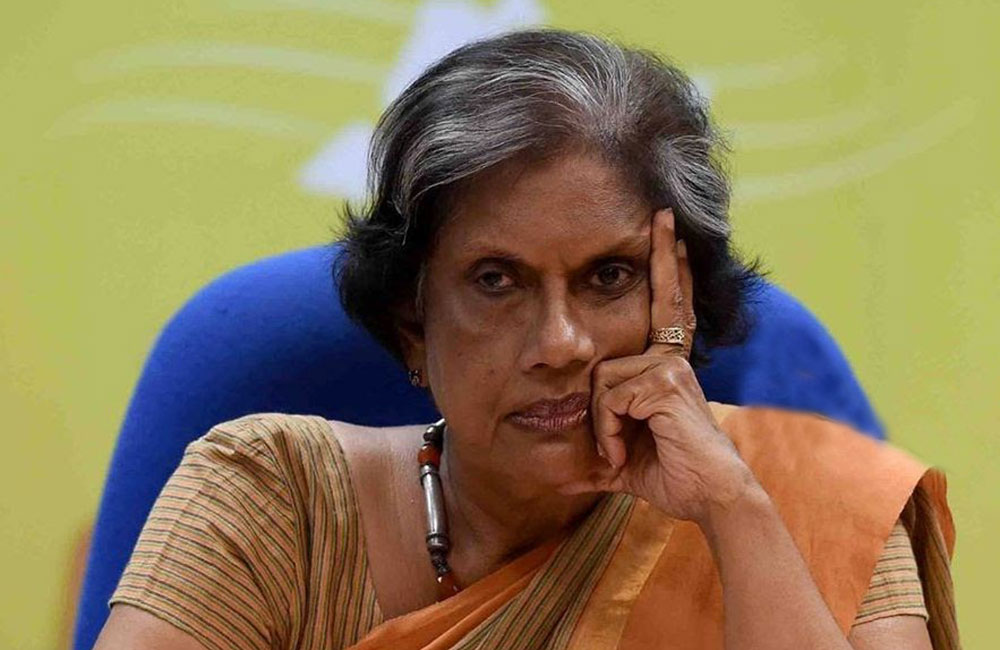Leaders must recognise, promote, protect the specific collective identities of their nations, but they must also open up to the globalised world, former executive president of Sri Lanka Chandrika Bandaranaike Kumaratunga said here on Saturday.
Speaking at the ongoing India Ideas conclave, Ms. Kumartunga hailed the leadership qualities of Mahatma Gandhi, Nelson Mandela, and Abraham Lincoln, and asserted, “Many of the conflicts which we see around us, in our region, in the world, may not have existed or could be resolved if we have leaders with such an agenda.”
“And when I say, specific identity of a nation, I do not mean only the identity of one group. The dominant group in a nation. I mean the collective identity of a nation, which is formed on this collective identities of all the communities, living within that nation,” said the Sri Lankan politician who served as the fifth President of Sri Lanka and survived many assassination attempts in ethnic-conflict-affected country.
Tracing the history of violence and conflicts, she said the demand for identity, the recognition for identity, right or wrong has “led to much violence in our generation within the last, I would say 75 years.”
“The conflicts we see around us, almost all of them are also founded on the demand of identity. Identity of groups within nations, or specific identities of different communities. Today this situation has been further exacerbated,” she said, adding, “ Even the major world powers, rather than opening out, are limiting themselves to promoting their specific interest of their nation. The recent America First policy adopted by the present American government is an example of this.”
Speaking of true inspirational leadership, she said leaders in general cannot follow people. They must lead them. “Indeed they must be sensitive to their people’s needs, their desires, their hopes, but they must lead them towards enlightenment, towards what is right for the nation, but also what is right for the world. A world marked by diverse communities, diverse peoples, different nations intermingled within,” said Ms. Kumartunga, and added, “With the recognition that each of the communities will have the right, the full right to equal status, to have the full right to their culture, their religions, their social traditions. But they must all come together in one nation, recognising the national identity as one nation.
Ms. Kumartunga invoked exceptional leaderships like Mahatma Gandhi, Nelson Mandela, Abraham Lincoln, who, she said “have gone beyond that, risen above that to bring the nation together, around one vision, around one interest of a nation and yet through recognition of diversity, the respect of diversity of difference.”
“I would say this is essential in this moment, in our modern world,” she said.
Source: The Hindu

Leave your comments
Login to post a comment
Post comment as a guest